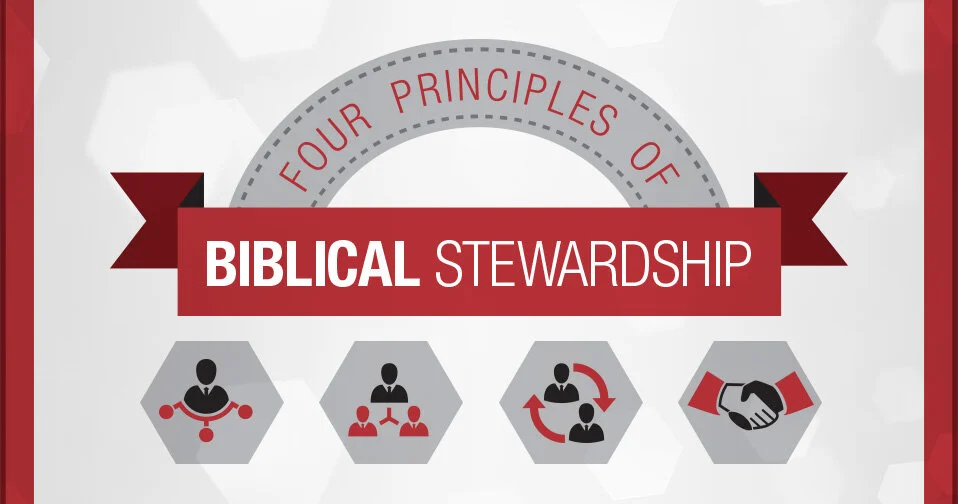The Supreme Analyst and Sovereign Forecaster
God Is the Supreme Analyst and Sovereign Forecaster: He Designed Situation Analyses
You may be surprised to learn that situation analyses including market reports and competitive assessments are not just modern-day inventions and practices endemic to the business world. They are not new to God. He designed them!
When Moses led the Israelites into the land that God promised them, he was directed by God to be proactive in assessing the situation, including the environment, or market, as well as the competition. The Lord told Moses:
“Send some men to explore the land of Canaan, which I am giving to the Israelites. From each ancestral tribe send one of its leaders.”
Numbers 13:1-2 (NIV)
Moses, being obedient to God, promptly instructed his men to go out and:
“See what the land is like and whether the people who live there are strong or weak, few or many. What kind of land do they live in? Is it good or bad? What kind of towns do they live in? Are they unwalled or fortified? How is the soil? Is it fertile or poor? Are there trees on it or not? Do your best to bring back some of the fruit of the land.”
Number 13: 18-20 (NIV)
After observing the land, the men returned. They brought samples of “the fruit of the land” and reported that although the towns were large and the land was fruitful and flowing with milk and honey, the people who lived there were much stronger and powerful than them (Numbers 13: 21-28).
God, the Supreme Analyst and Sovereign Forecaster, then instructed Moses to send a few men to go into the land, ahead of the broader team, to evaluate and analyze the market before the entire team proceeded to enter it. In these ways, the disciples were actually conducting a situation analysis. In order to be prepared for the market situation and position themselves for success, they were doing preliminary research, gathering data, assessing the external threats and opportunities, and evaluating their own internal strengths and weaknesses.
God-Ordained Seasons in Business
God has a term for the constant market fluctuations and industry trends we see every day in the business world. He calls them “seasons.” A season is generally defined as events taking place over a period of time. The Bible says that “to everything there is a season, a time for every purpose under heaven” (Ecclesiastes 3:1, NKJV) and that there are signs and seasons for everything (Genesis 1:14), including the ebb and flow of the business world.
But Jesus tells us in Acts 1:7 (NKJV): “It is not for you to know times or seasons which the Father has put in His own authority.” Applied to the commercial arena, this scripture asserts that it’s not necessary for us to know or understand all of the times and seasons we go through in business. We just need to know the Father—the Supreme Analyst and Sovereign Forecaster.
Jesus lectured His disciples about the importance of being able to discern the time and seasons (Luke 12:54-56). He admonished the Pharisees and Sadducees, saying, “Hypocrites! You know how to discern
the face of the sky, but you cannot discern the signs of the times” (Matthew 16:3, NKJV). Similarly, we as Christian business leaders must also discern the signs of the times relative to our commercial endeavors. Are you in a season of sowing and planting? Or one of reaping and harvesting?
God controls the course of world events. He gives us knowledge and wisdom and “He reveals deep and mysterious things and knows what lies hidden in darkness, though He is surrounded by light” (Daniel 2:21-22, ESV). God knows exactly when social, political, and economic shifts will occur as well as their potential impact on your business both positively and negatively. He knows about the upcoming technological advancements, international market shifts, consumer trends, government regulations, and corporate alliances that are not even at the conceptual stages of development today but will prove to be major forces impacting your business in the future. God knows the real financial future of the companies with which you are interested in investing or partnering. And He can reveal all of this to you if you look to Him first.
Primary Versus Secondary Data Sources
When we think of primary versus secondary data sources, we typically think of marketing research. Primary research consists of experiments, investigations, or tests that involve data observed or collected directly from firsthand experience. Secondary research, on the contrary, involves a review or study of published data that has been collected in the past. Let’s consider the notion of primary and secondary data sources from a spiritual perspective.
As Christian business professionals, we must ensure that we keep the conventional aspects of business research and support systems in the proper perspective. From a spiritual standpoint, they are all secondary data sources and tools. Our primary focus must be on God and His divine plan for our business. He should always be our Primary Data Source and Ultimate Resource for industry and market information because He is the Supreme Analyst and Sovereign Forecaster. God is our Source. Everything else is simply a resource.
Related articles
How did Jesus spend his last hours before the cross? He ensured His “Executive Leadership Team” had vision, clarity, and line of sight on essentials and prayed for their cross-functional unity!
Faith-based enterprises transforming economies intuitively makes sense but its potential has yet to be realised. Why is this the case?
Whether it’s in your culture alignment, marketing effectiveness, or simply in increased profitability, we’re dedicated to helping your business to reach new heights.
You may be surprised to learn that situation analyses including market reports and competitive assessments are not just modern-day inventions and practices endemic to the business world. They are not new to God. He designed them!
Are you more wired as an enterprise leader or an entrepreneurial leader? Read more on why both types of leaders are needed in most successful organizations.
As a Christian business owner, are you are attempting to integrate biblical principles into every aspect of your business? How about your retirement plan? Is it even possible to honor God through your 401(k) plan? If yes, how?
After working with literally thousands of leaders and companies, I’ve discovered there are three stages for any business or enterprise growth. Don’t think days and weeks; instead, think growth and maturation.
Early on in a start-up’s life, one must be prepared to iterate…a lot. To think you have got it right on the first try is naive. You don’t have it right. You will need to duck, dodge, and weave your way into the right business model and solution for your target customer. Enter the “good idea fairy.”
Have you ever looked up the definition of pivot? What if I shared with you that we as leaders are the “Pivotman/woman” for our organizations?
In a business world that prioritizes productivity, speed, and profits, Christians may feel like Monday through Friday belongs to the world while Sunday belongs to God. But Scripture beckons Christians toward a more holistic lifestyle. “Whatever you do,” Paul says in 1 Corinthians, “do it all to the glory of God.”
When we (C12 Group) first began to release information, resources and guidance on playing offense in regards to COVID-19 in February there were some reports of “what’s the big deal, it’s not effecting my city, business, industry.” Those delusions are quickly fading. As a global economy, human race, and universal Church everyone is and will be effected in one way or another.
“Creativity must be accompanied by a process to uncover and test the best ideas… With the surplus of good ideas, we knew we needed a process to help us systematically prove out the ones that would solve real problems, and help us avoid expending valuable resources and talent with nothing to show for or learn from at the end.” In this video, we hear from Kevin Miller, C12 Vice President of Marketing, who describes how C12 developed its Innovation Sequence.
This article was from a collection of White Papers compiled for attendees of the CEF’s 2019 Global Event. Today, we share the Morales family’s White Paper on their company FXM — “Hard work in God’s name, diligence, honesty, and a deep knowledge of “Who’s who” in the Mexican food industry has meant the world for our success as a company. ”
Chris Horst and Claire Stewart share their Christianity Today article “The Christian Roots of the Fair Trade Movement” with us. Beneath the buzzwords around sustainability, transparency, and ethical sourcing we find something far more important than consumerism: Christ-centered love for our neighbors.
What does stewardship look like in our lives today? What does it look like in our businesses? Unfortunately, many Christians today only associate the idea of stewardship with sermons, church budgets and building programs. The idea of biblical stewardship is much more expansive. It is where the concepts of faith, work, and economics intersect.
C12 Member, Todd Stewart, and CEO of Gulf Winds Intl, decided a 50% employee engagement rate was not acceptable within his freight and shipping company. He and his Key Player executive team purposed to engage each employee by listening to their needs and delivering exceptional employee care.
Originally published by WRAL TechWire — Bandwidth , a Triangle-born provider of communications-related services that has grown into a venture with global reach, might be riding high at the moment after recently hitting the $2 billion valuation mark. But as its founder and CEO David Morken can attest, it hasn’t always been smooth sailing. He credits one thing for getting him through: his Christian faith.
The Lion's Den, with their conferences in Dallas and Birmingham, have been partners in the Faith Driven Entrepreneur movement for more than 5 years. Think "Shark Tank" meets the Kingdom of God and you have a sense as to what happens at these events. This video is about building your business for God and creating a culture that is Christ based.
From time to time we leave the world of faith driven content to highlight a piece of wisdom from a secular author that has inordinate wisdom and application for you, the faith driven entrepreneur. Enjoy this great blog post from Marc Andreesen!
Originally published by Fast Company— When entrepreneur Chris Chuang moved to Raleigh, North Carolina, for a job, he expected to be there for two or three years at the most. Instead, he wound up staying and built a successful tech company.
This article was from a collection of whitepapers compiled for attendees of the CEF’s 2018 Global Event. We share Darin’s whitepaper in anticipation of 2019 CEF whitepapers launching soon! Read Darin Owen’s view on how to start, build, and grow prosperous companies.
“There are other ways of writing about the stages of business development. I’ve done it myself, but I find quantifying it in this way—0 to 1, 1 to 5, and 5 to 50—makes sense to a lot of my clients. It works in any industry, any style of corporate culture, and every market I can think of.”
Originally published by Fast Company— Corrie Conrad, Head of Social Impact at Sephora, shares about Sephora Stands Together (financial support to Sephora employees), Classes For Confidence (workshops for women trying to reenter the workforce) and Sephora Accelerate, its startup incubator.
C12 shares their video on Gary Archer’s story. He shares on the impact of working with a workplace ministry group that encourages and challenges you in your walk with the Lord and how it integrates with your business.
We understand that we are created in God's image, that he was a creator and a designer and therefore we are the same. As entrepreneurs we inherently get this at some level, but I think that we are well served by tapping in to this Biblical truth regularly as we look for an encouragement in our work. No one does a better job of this, in my opinion, than Jerry Bowyer.
Originally published by FORBES — The Millennials, who were born into the age of information, have been described as lazy, narcissistic, entitled and unable to stay in one job, but also as the most purpose-driven and potentially the most entrepreneurial of all previous generations. Why?
Today, we share a high-caliber podcast series from NPR! How I Built This with Guy Raz dives into the stories behind some of the world's best known companies & movements and the innovators, entrepreneurs and idealists leading them.
Jon Kontz shares his insights on hiring the right people (as individuals and as part of a team) using tools like The Team Dimensions Profile 2.0 but also by simply knowing the momentum and scarcity of resources based on the size of your own company.
——
[ Photo by Mark König on Unsplash ]





























In Pierce Brantley's research, he's discovered that many well-meaning Christian business owners will get stuck at various stages of business without realizing it.